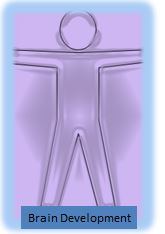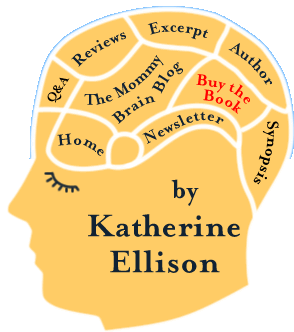Can Mother’s Exercise Boost Baby’s Brain Maturity?
 I regularly get emails from parents asking what they can do to help improve their kid’s brain function and cognitive performance. I offer plenty of tips in the Next Brain blog but am always on the look out for more.
I regularly get emails from parents asking what they can do to help improve their kid’s brain function and cognitive performance. I offer plenty of tips in the Next Brain blog but am always on the look out for more.
For example the New York Times has an interesting article about a research study that suggests as little as one-hour of exercise per week while pregnant can have a pronounced impact on how a new born’s brain processes stimulus.
“their brains were more mature,” Ms. Labonte-LeMoyne said.”
The study cautions that it is not clear if other factors are at play or if the relative advantage will persist as the child develops. The researcher conclude:
“But for now, the lesson is clear. “If a woman can be physically active during her pregnancy, she may give her unborn child an advantage, in terms of brain development,” Ms. Labonte-LeMoyne said. And the commitment required can be slight.”
I am interested to hear about other research studies that examine the impact of exercise (or lack of it) by a mother on her baby’s brain function and cognitive performance.
Categories: Child, Cognitive Development, Parent Tags:
Mom’s Brain Bulks Up After Giving Birth
 Exciting new research suggests that a mother’s brain undergoes significant growth (actually gets larger) in several areas just after birth. Additional brain volume in turn leads to improved cognitive performance. Specifically, hormonal changes seem to trigger improvements in maternal motivation, emotional processing, sensory integration and reasoning and judgment.
Exciting new research suggests that a mother’s brain undergoes significant growth (actually gets larger) in several areas just after birth. Additional brain volume in turn leads to improved cognitive performance. Specifically, hormonal changes seem to trigger improvements in maternal motivation, emotional processing, sensory integration and reasoning and judgment.
The research is reported in the journal Behavioral Neuroscience and summarized nicely in Science Daily.
“In particular, the mothers who most enthusiastically rated their babies as special, beautiful, ideal, perfect and so on were significantly more likely to develop bigger mid-brains than the less awestruck mothers in key areas linked to maternal motivation, rewards and the regulation of emotions.”
Although motherhood is not a strategy for improving brain function and cognitive performance it does seem to have that effect. Especially for those that truly cherish what they have. This is a fry cry from some commonly held beliefs that motherhood can “turn your brain into mush”. It may seem that way with the all additional responsibilities, learning that must be done and the new things to remember but that is how growth normally feels.
Just as the aging mind ripens in many ways with time, taking on the responsibilities of motherhood appears to push the brain to a whole new level of performance.
Categories: Cognitive Development, Lifestyle, Manage Emotions, Parent Tags:
Does Raising a Child Make You Smarter?
 Absolutely, if you are the Mother! At least that is the argument made Katherine Ellison in her book the Mommy Brain: How Motherhood Makes Us Smarter.
Absolutely, if you are the Mother! At least that is the argument made Katherine Ellison in her book the Mommy Brain: How Motherhood Makes Us Smarter.
Motherhood gives a brain boost in many ways including face reading, multi-tasking, fearlessness, serenity, empathy, assertiveness and mental dexterity. These improvements in both IQ and EQ come from a combination of new hormones, motivation and practice that motherhood brings about.
The book is well founded in the latest neuroscience. It upends the stereotype of mothers checking their brains at the delivery room doors. Check out the Mommy Brain site by clicking on the graphic to the right.
Categories: Books, IQ and EQ, Lifestyle, Manage Emotions, Mental Focus, Parent, Perception Tags: embodied cognition, EQ
Right Words Boost Infants’ Mental Development
 One question new parents ask is what natural things can I do to stimulate the development of my baby’s brain and make them smarter? There are number of very simple things that have good scientific evidence behind them. For example, new research from Northwestern University confirms that talking to your baby accelerates their cognitive development. Using the right words improves their ability to categorize objects.
One question new parents ask is what natural things can I do to stimulate the development of my baby’s brain and make them smarter? There are number of very simple things that have good scientific evidence behind them. For example, new research from Northwestern University confirms that talking to your baby accelerates their cognitive development. Using the right words improves their ability to categorize objects.
It has long been held that talking to your baby is good for mental development but the Northwestern research found that this is so for the very young, only 2-4 months. The researchers write:
“We suspect that human speech, and perhaps especially infant-directed speech, engenders in young infants a kind of attention to the surrounding objects that promotes categorization,” said Waxman, a co-author and professor of psychology. “We proposed that over time, this general attentional effect would become more refined, as infants begin to cull individual words from fluent speech, to distinguish among individual words and kinds of words, and to map those words to meaning.”
Hearing object-correlated words influences infants’ cognition even in the first few months of life! The key is to clearly use “real words” or ones that properly pick out objects.
It is not clear what the longer term brain-boosting advantages of this are but the ability to categorize is fundamental to how we think.
To get started you may want to check out the talking pointers from the Center for Early Literacy. If you use this technique, or others to boost your baby’s brain development, please share your experience with other readers by leaving a comment.
Categories: Child, Cognitive Development, Lifestyle, Parent Tags:
